
Official Interview
What is the coolness of a rock band?
As we unravel THE ORAL CIGARETTES' new song "MACHINEGUN," we eventually hit upon such a question. Following the release of "Red Criminal" in June, "MACHINEGUN" has been chosen as the opening theme for the second season of the TV anime "SCARLET NEXUS". "MACHINEGUN" is a fast, -as the name suggests- “machine-gun” rock number with the individual skills of the band members meticulously intertwined. This song, produced by Shuntaro (Hello Sleepwalkers), expresses the members' will to return to “rock-mode” once again.
- I think you were also concerned about "SCARLET NUXUS", but how did you compose "MACHINEGUN"?
- TAKUYA:After "Red Criminal," "MACHINEGUN" was...we composed it this year, right? Was it this spring?
- MASAYA:Yes.
- TAKUYA:We rented a workroom in the spring and have been composing in that room. After the release of "Red Criminal," we continued to compose while thinking about our future activities. And we were asked to compose the opening theme for “SCARLET NEXUS”, we wanted to choose one of the compositions from those days. However, there was no song that fit that image. Moving forward, I think emotions are the theme among us.
-
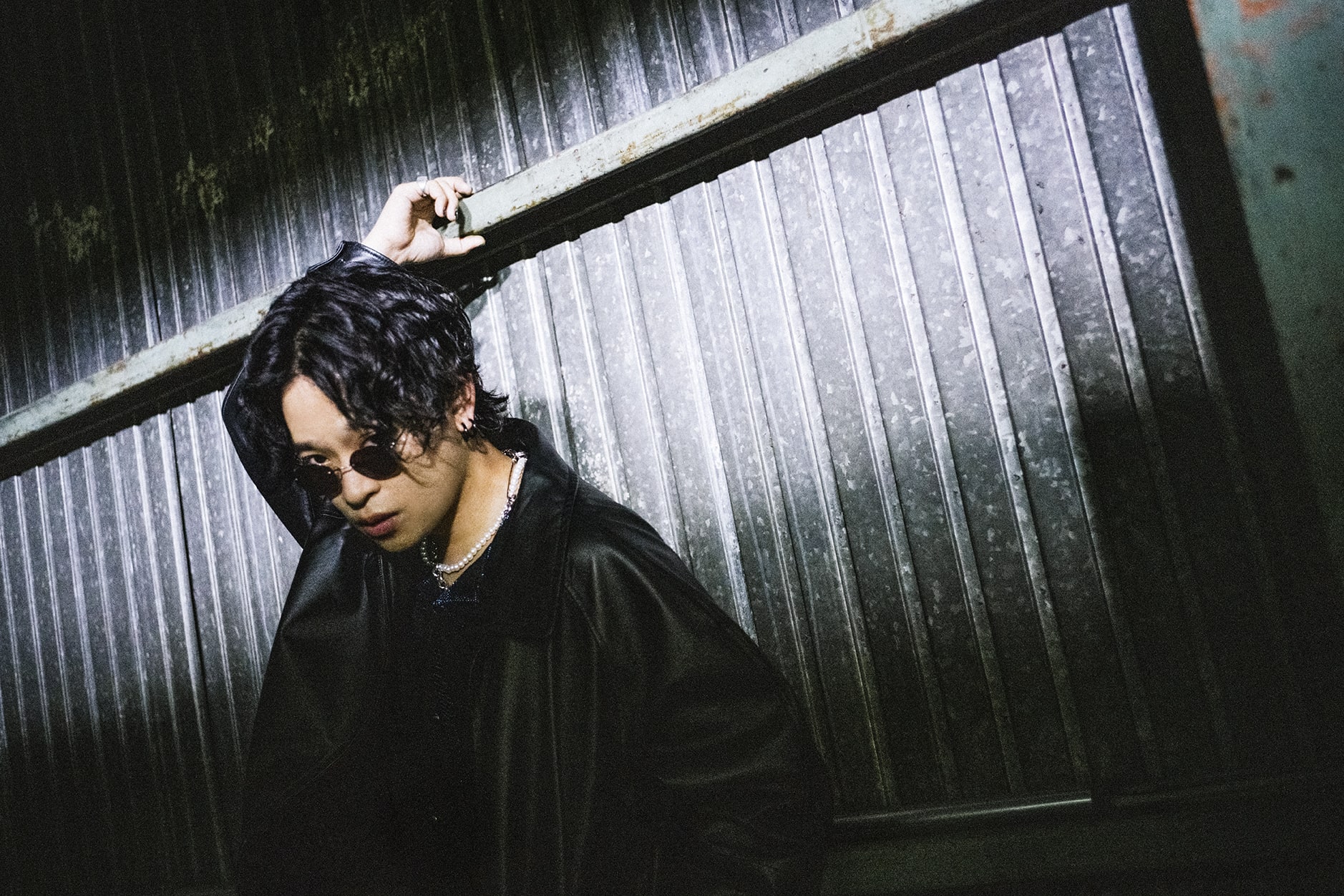
- Can you explain more?
- TAKUYA:We want to focus on how we play with our anger, sadness, and other emotions, rather than how the listener feels.At that point, all we had were songs that made me feel sad when I sang them. This time, however, I wanted to push "Red Criminal" more. This is because I was influenced by the music festival and the way I think the rock band scene is today. I want to unleash strong rock. It was with this in mind that I began composing.
- Although "Red Criminal" and "MACHINEGUN" have something in common in the sense of a rock band, "MACHINEGUN" is faster and more impulsive than "Red Criminal”.
- TAKUYA:The difference is that we went back to our roots once again. I wanted to look back and see what kind of music I had been listening to and what kind of bands I thought were cool.
- AKIRA:When composing, we listened to the music of bands we used to listen to a lot.
- TAKUYA:Yes.
- AKIRA:We were listening to bands from the Kansai region such as tricot, KEYTALK and Arukara, who we are still friends with today, in the dressing room of the tour we were on around spring.
- TAKUYA:And Jeepta. The music that we have been influenced by has been different from that of the current music scene. It's hard to say...I was listening to music that honestly made me think that if I did this, it will actually not click with the scene. I thought such a band was cool. So I felt guilty. I thought it might be impossible for us to do this.
- Does that mean you can't compete in the mainstream?
- TAKUYA:I had such distracting thoughts. However, as I mentioned earlier, when I tried to go back to the impulse I had when I was playing rock music, I still felt that the Red Hot Chili Peppers were cool and Arukara had a different appeal. It gave us confidence in what we thought was cool. I feel like "MACHINEGUN" is a very real expression of that.
- It may have originated from the idea that it's difficult to give the world a shot, but I thought that "MACHINEGUN" had the catchiness to compete in the mainstream.
- TAKUYA:Oh really? For me, there is a feeling of "don't have to go out there" to this song.
- SHIGE:Even though this song is the theme song of an anime?
- Everyone:(Laughing)
- TAKUYA:I really think so. I'm not aiming for the top charts in Japan. As long as it sticks in the festival scene or the live music scene, it's okay. That's the strength I feel in this song.
- MASAYA:It's a song that makes you feel "cool" without even thinking about it. If people from the environment we grew up in from the indie days listen to it.
- TAKUYA:I also listened to the sound files of the band that Masayan used to play in.
-
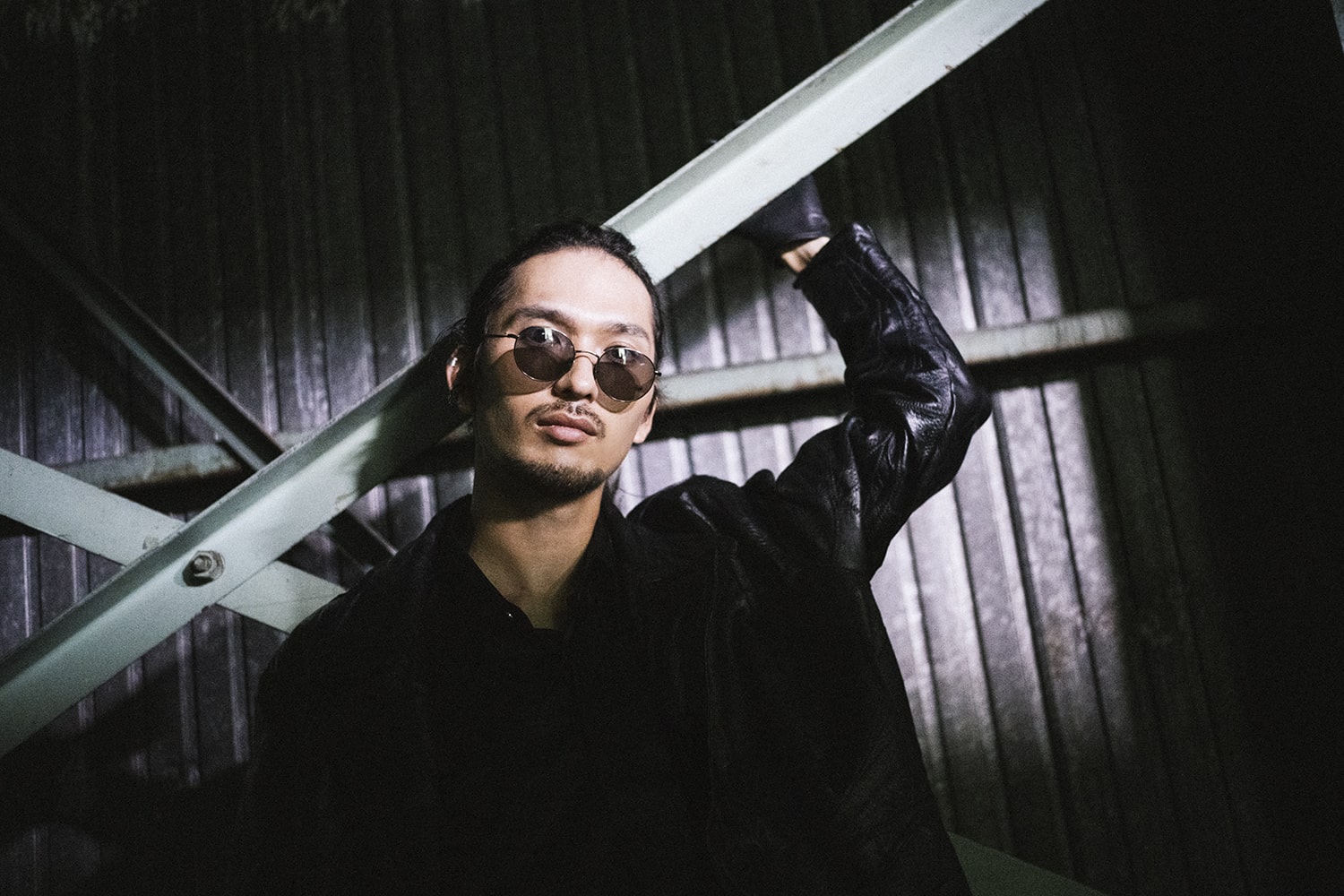
- Was it during composing of this song?
- MASAYA:Yes, I sent it directly to him.
- I think it was a big change, especially since the last three or four years you have been conscious of how to reach the pop music scene as well.
- MASAYA:When we became big enough to play in arenas, we tried to expand the range and depth of our music, we were kind of forced to be aware of the music charts and bands that were getting attention beyond and in the mainstream. The more I became aware of it, the more inferior I felt, something I had never felt before.
- Oh, I see.
- MASAYA:I wondered what it was. But when we played "Red Criminal" at a festival this summer, I felt free and no longer inferior. I thought I was feeling inferior because of the influences around me, but in reality I was feeling it because I was moving further and further away from my ideal image. Once again, when we were free to do what we thought was cool, I felt less anxious, and I simply felt that this was the strongest thing we could do. I think that a band, for me is something that I should fight for in the direction I can face to.
- This feeling would have been surprisingly difficult to reach if you had only stuck to your origin. I think it's meaningful to be able to think that way after having played many different genres of music.
- TAKUYA:So after all it was "SUCK MY WORLD". Kisses and Kills" and "SUCK MY WORLD" focused on the music, not the rock. I didn't care about trends at all, and tried to capture the music I liked in my own history. I didn't do anything that would limit us. In that sense, I'm satisfied with "SUCK MY WORLD". Through the course of making “SUCK MY WORLD” I was able to learn the history of rock and gained more knowledge towards all kinds of music, and that brought us to the point where we thought “Then what is a rock band?” So in that sense, I’m really grateful of “SUCK MY WORLD.” ‘Cause we were able to “get back” to where we are now with a more solid mentality.
- Following "Red Criminal", did you compose this song in the studio this time as well?
- TAKUYA:No, we composed "MACHINEGUN" in a different way. For "Red Criminal," I didn't make a demo because it reminded us of the way we used to do things in the indie days, recording voice memos and writing together in the studio. This is because we compose most of our music on the desktop these days. When we composed "Red Criminal," it reminded me of the feeling I had when the four of us used to get together and compose. "Oh, We've been doing this! Interesting!" Like that. At that time, with “Red Criminal” we were able to go back to our roots, so with "MACHINEGUN" we once again got back to the method of composing while facing the screen as usual.
- How did it come about that Shuntaro (Vo/Gt) of Hello Sleepwalkers was involved as a producer?
- TAKUYA:Through my solo activities, I have lost all resistance to Co-Write. It's better to make something cool. So I thought I'd like to have the brain of another person who writes music. I thought that if we could rub them together, we could take this song to the next level. As I was composing it, I thought of Shuntaro's face. I respect his work, and all four of us love Hello Sleepwalkers.
- Oh, I think you like it.
- TAKUYA:(Laughing) So we decided to do that. We invited Shuntauro to our production room and we started composing it.
- What did you think was added by the addition of Shuntauro?
- AKIRA:“difficulty.”
- Everyone:(Laughing)
-
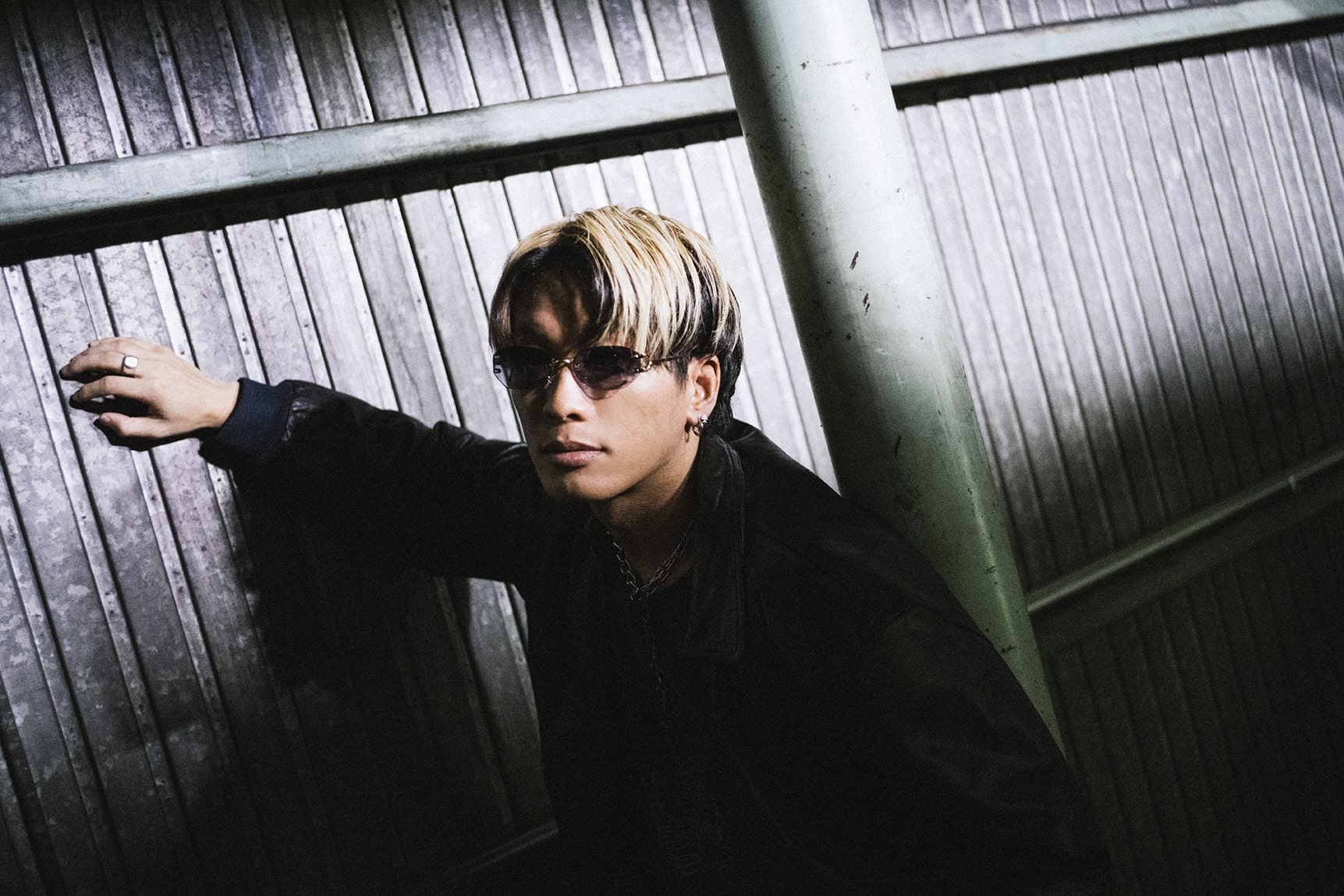
- That's a quick answer.
- AKIRA:Difficulty and complication. I was amazed at how complexed a song could be. Like, I'm gonna have to work on that. That's why I was able to do my best, you know?
- Akira's bass line is complex and rough, but it's also delicate enough to accompany the melody.
- AKIRA:He is great. I learned a lot. With the addition of another artist, there was a level of detail that had not been included in Takuya's previous demos. I'll do it all, I thought. Rather, I had to make it my own phrase.
- What kind of communication did you have with Shuntauro?
- AKIRA:"If I change the base like this, it will have this effect, what do you think?" he would give me his opinion as if he were a bassist. For example, "The drums are moving like this right now, so I think this would be better”. I thought he knew about the drums too. Since we were able to talk that much, I'm confident that we were able to create it together.
- Shige, how was it working with Shuntaro on the songs? You sound like “the rock guitarist,” playing non-stop till the end.
- SHIGE:Yes, it is. As I was working on it with him, I realized that He has a lot of knowledge about various genres, and I kept finding things like "Hallelujah" from "SUCK MY WORLD" that I had done when it was a blues-like song.
- Hmm.
- SHIGE:But I almost became neurotic when I was recording. From the intro to the beginning of the melody, I was making more nuanced changes to what was in Takuya's demo, but then Shuntero told me to "choke that part a little more". "What's the difference?" I thought.
- How many times did you have to re-record it?
- SHIGE:I played the same phrase over and over until I got the nuance right. I couldn't understand it in words, so I asked him to play it at the end, and he was good at it.
- He's not saying what he can't do, is he?
- SHIGE:That's right. And I was like, "I see.”
- How was it, Masayan?
- MASAYA:We really like Hello Sleepwalkers. When I auditioned to join my current agency, Hello Sleepwalkers was the guest act. I was shocked to see their performance for the first time there. I was so shocked that I thought “we are going to jump into a world where these kinds of bands actually inhabit.”.
- TAKUYA:That's true.
- MASAYA:I was happy to be able to work with a band that I had toured with afterwards in this way. Even before COVID-19 pandemic, Yuki's (Dr.) technique in Hello Sleepwalkers was so amazing that I couldn't copy him even if I wanted to. After much deliberation, my conclusion was that I should copy him using a laptop.
- That's a great way to analyze it.
- MASAYA:There was a time when I did that, so when I got the demo for "MACHINEGUN" back, there was a huge link between the two in my mind. I made it into my own style. If I thought, "I can't play this phrase, can I?" or "only Yuki can play this twin pedal", I change it to a heavier phrase in my own way. Even when I made changes, Shuntarou knew the range of his ideals and accepted them with open arms, which made me feel very comfortable.
-
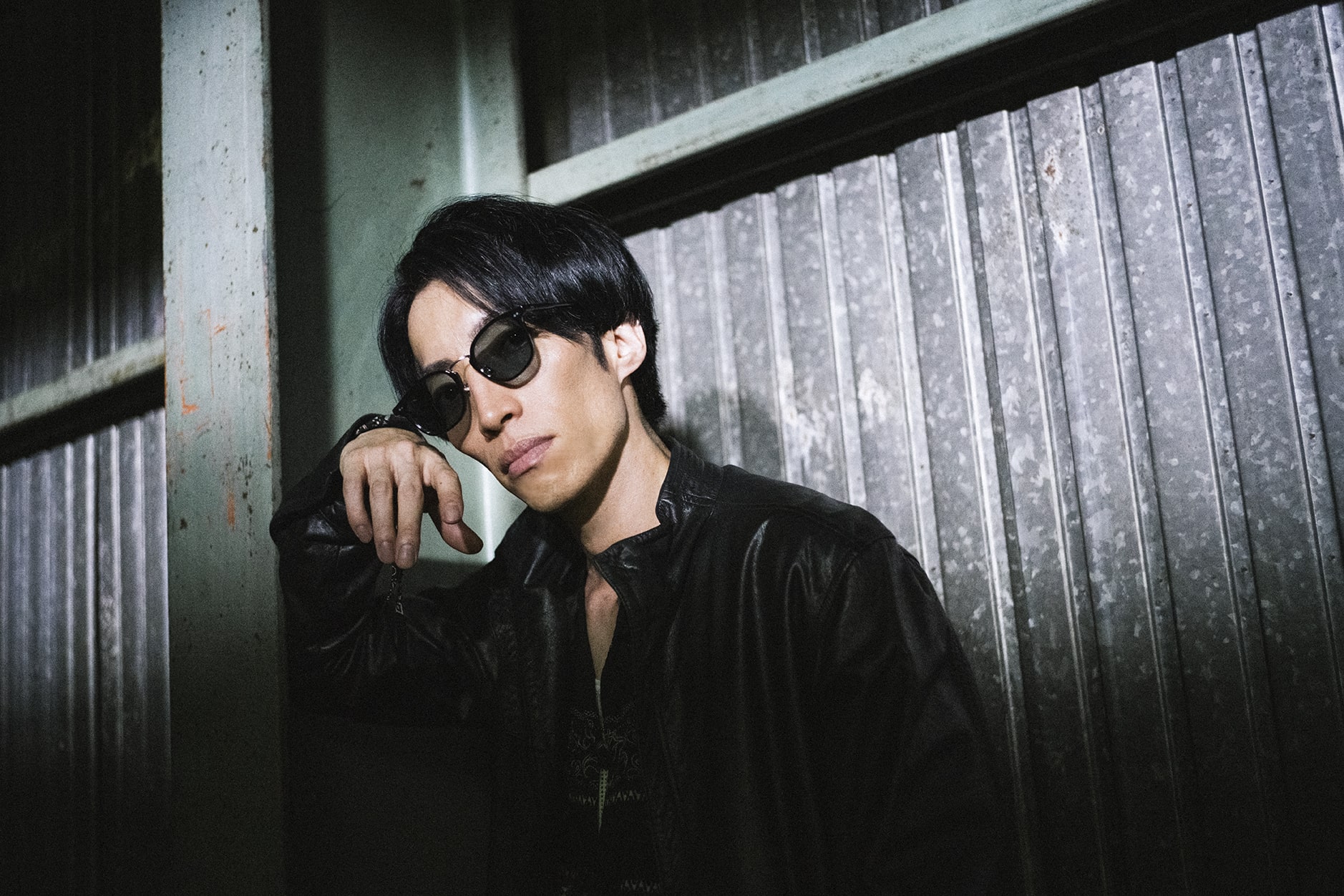
- I see. Each of you is playing beyond your capacity, so your minds are returning to your roots, but the songs you have written are completely new.
- TAKUYA:I'm satisfied. I was in the studio again yesterday, and I thought it would be a great way to capture the audience in a live performance. When I can write a really good song, I can see the floor, and this song has that kind of response.
- Can you tell us about the lyrics? I think it's based on the second season of "SCARLET NEXUS," but how did it differ from the first season?
- TAKUYA:The first season was more about the main character and the world, so I wrote a wider world for "Red Criminal". It's like, How can I live within my predetermined destiny?. And for "MACHINEGUN," I read the story of the second season and found that it focused on the relationships between the characters, so I picked up on that and wrote it. It's like, how do you deal with people?
- If "Red Criminal" was "me vs. the world", "MACHINEGUN" is "me vs. you".
- TAKUYA:That's right.
- In this song, you sing the important parts in English, right?
- TAKUYA:Yes, I do feel that way. It's not that I dared to do so, but rather because I thought English would be more suitable.
- The phrase "You'll see I'm always on your side". I felt a great tenderness in that. This goes along with the question of what rock music is supposed to convey.
- TAKUYA:It's hard to say how much I should talk about it because it would spoil the story of the anime. I was overlapping with the main character Yuito, and I felt the tenderness in the way he showed his intentions in the changing relationships with the characters. It also overlaps with the relationship between us and our fans, doesn't it? It's not the same as saying that the audience would betray us ...... in the Covid-19 pandemic. I think it was easy to give up on them. In the situation where we could no longer perform live, there must have been people who thought, "Maybe I don't need to go to concerts anymore. Even so, I felt that the people who came to us and said they were happy to see us perform in front of them really had deep pockets and loved us that much. We want to give back to them with love.
- I think that's the root of this song.
- TAKUYA:Yes. In a very narrow sense, I don't like the unnecessary bullying on social networking sites. I think the theme was that it's more important to give love to the small things around you than to give big love to them.
- Recently, I heard that the number of overseas fans has been increasing.
- TAKUYA:We get a lot of comments in English on YouTube.
- AKIRA:There are people who write while studying Japanese.
- TAKUYA:Yes, yes, yes. I'd like to give something back to them. When we toured Asia in 2019, I thought it was important to experience firsthand that there were so many people waiting for us. When the Covid-19 pandemic is over, I'd like to do the Asia tour that I was supposed to do. I would like to think about going to Europe or America also.
- AKIRA:I'd love to go.
- TAKUYA:Yes. It will be fun.
- MASAYA:During the last FC tour, we had a fan meeting instead of an encore. At that time, the person Akira asked a question to happened to be a Chinese girl. I was shocked by that.
- AKIRA:She said, "Please come back to Shanghai”.
- MASAYA:They are studying Japanese for us. If we are generating that kind of energy, I think we should be more confident in what we are doing.
- SHIGE:They give me messages with the same tension as Japanese people. I can tell that they are listening to a variety of songs, not just one. I'd like them to see a variety of songs played live someday.
-
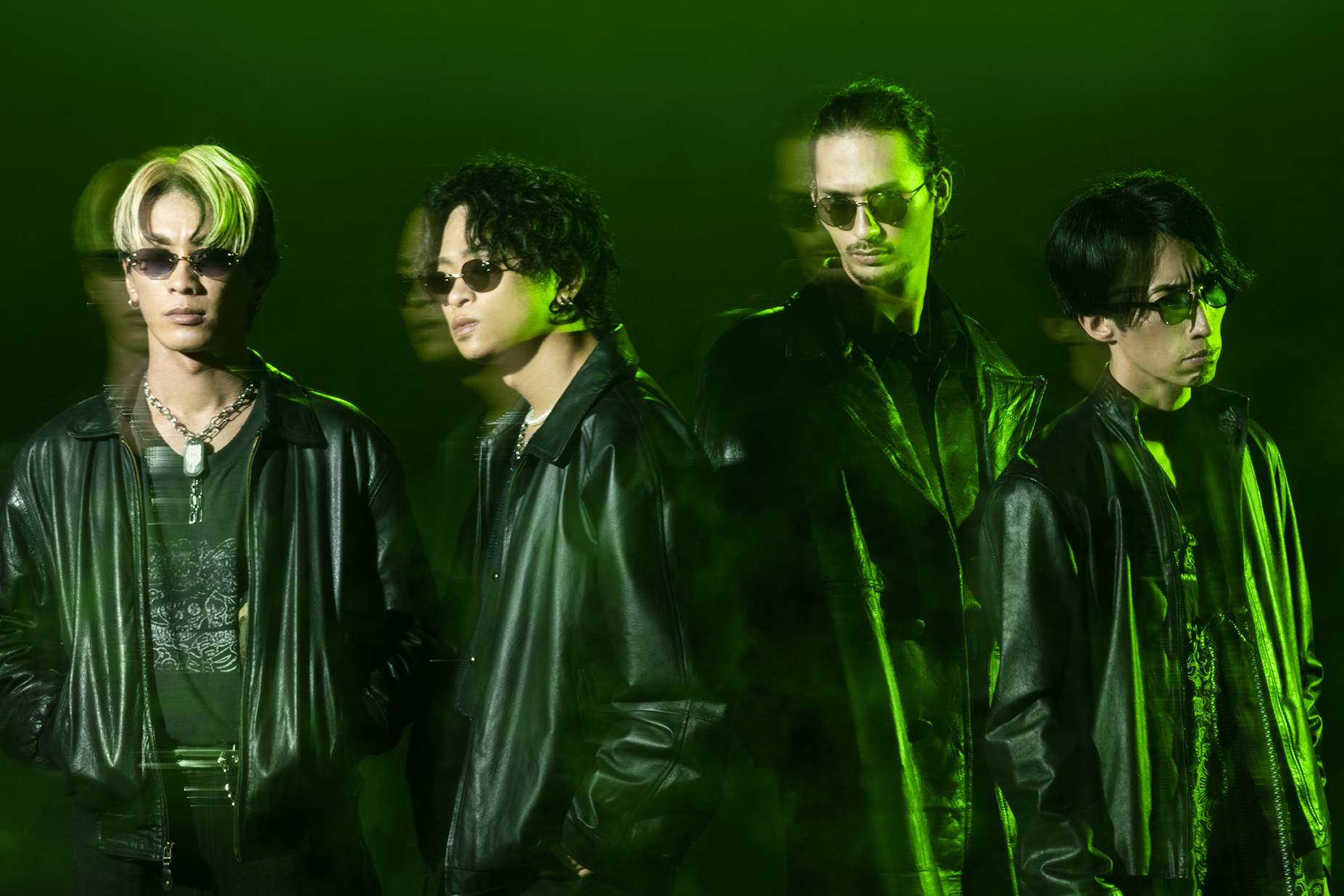
TEXT:Rie Hada
PHOTO:Satoshi Hata
THE ORAL CIGARETTES OFFICIAL SITE
© MASH A&R All rights reserved.
